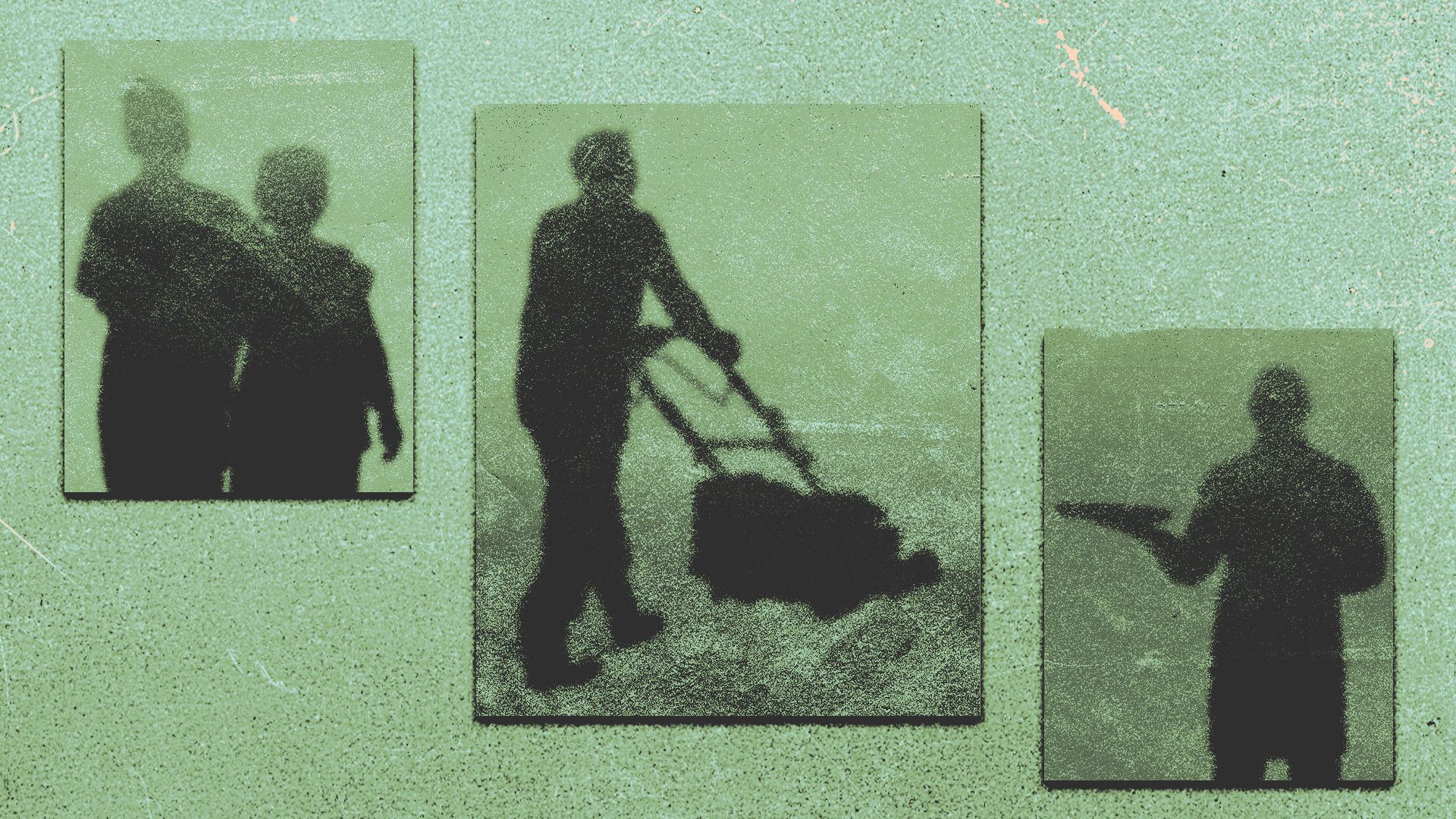
Illustration: Brendan Lynch/Axios
For months, Trump administration officials have been adamant about targeting all the millions of immigrants who are in the U.S. illegally, regardless of their work or taxpaying status.
- But now Trump is making a huge exception: those working at hotels, farms, meatpacking plants and restaurants.
Why it matters: He's bowing to pressure from businesses that have been warning of economic devastation — and is opening the door for potentially millions of workers who are here illegally to stay after all.
Zoom in: The pressure — particularly from the agriculture and hospitality industries — had been building for months.
- But it ramped up in recent weeks, after top Trump aide Stephen Miller and Homeland Security Secretary Kristi Noem met with top ICE officials in late May and demanded that immigration agents dramatically boost their arrest goal to 3,000 people a day.
- That mandate helped drive many of the increasingly aggressive raids by masked, heavily armed Immigration and Customs Enforcement (ICE) agents across the nation.
- It also helped inspire protests about ICE's tactics — most notably in Los Angeles, where Trump called in the National Guard and Marines over the objection of state and local officials.
How it happened: Trump's pivot appears to have emerged Wednesday, sources with knowledge of the situation tell Axios.
- Agriculture Secretary Brooke Rollins called Trump to say farm groups were increasingly concerned that the stepped-up immigration raids would lead many reliable workers to be arrested — or stop showing up for work, out of fear.
- Their conversation, the sources said, led Trump to post a message on Truth Social Thursday saying that immigrants in the agriculture and hospitality industries are "very good, long time workers."
- He hinted at exceptions for such workers who are here illegally, saying: "Changes are coming."
Later Thursday, Tatum King, a senior ICE official, sent an email to agency officials nationwide, telling them to "please hold on all worksite enforcement investigations/operations on agriculture (including aquaculture and meatpacking plants), restaurants, and operating hotels."
- The email added that "other case types/investigations such as human trafficking, money laundering, drug smuggling into these industries are ok, however we are not pursuing non-criminal collaterals."
The intrigue: White House insiders insist this isn't a case of Trump flip-flopping — and that he still supports the hard line on immigration enforcement that Miller and Noem have pushed.
- But it's clear that the economic calamity that could result from mass deportations of unauthorized workers who do labor-intensive jobs most Americans won't, will lead to some changes in Trump's immigration plan.
Undocumented workers and those with expired work visas can be difficult to track across sectors of the economy But some studies have given a glimpse of their presence:
- The American Immigration Council estimates that unauthorized immigrants make up about 4.6% of the nation's employed labor force — that would amount to more than 7 million people.
- A recent Department of Agriculture study estimated that about 42% of America's farmworkers were undocumented from 2020 to 2022.
Trump previously floated the idea of creating exceptions for workers in crucial industries.
- In mid-April, he suggested a pathway to citizenship for "great" unauthorized immigrants who play key roles in the economy — a way to live in the U.S. legally if they'd self-deport and have an employer support their return.
- But that idea wouldn't eliminate the chaos that industries pushing for leniency are trying to avoid.